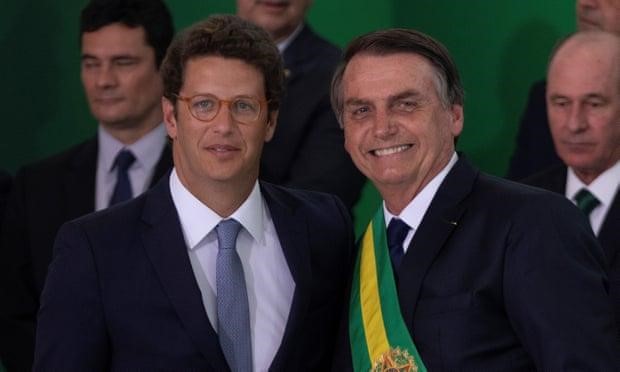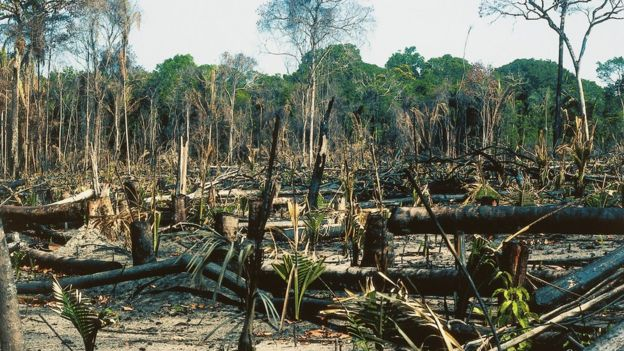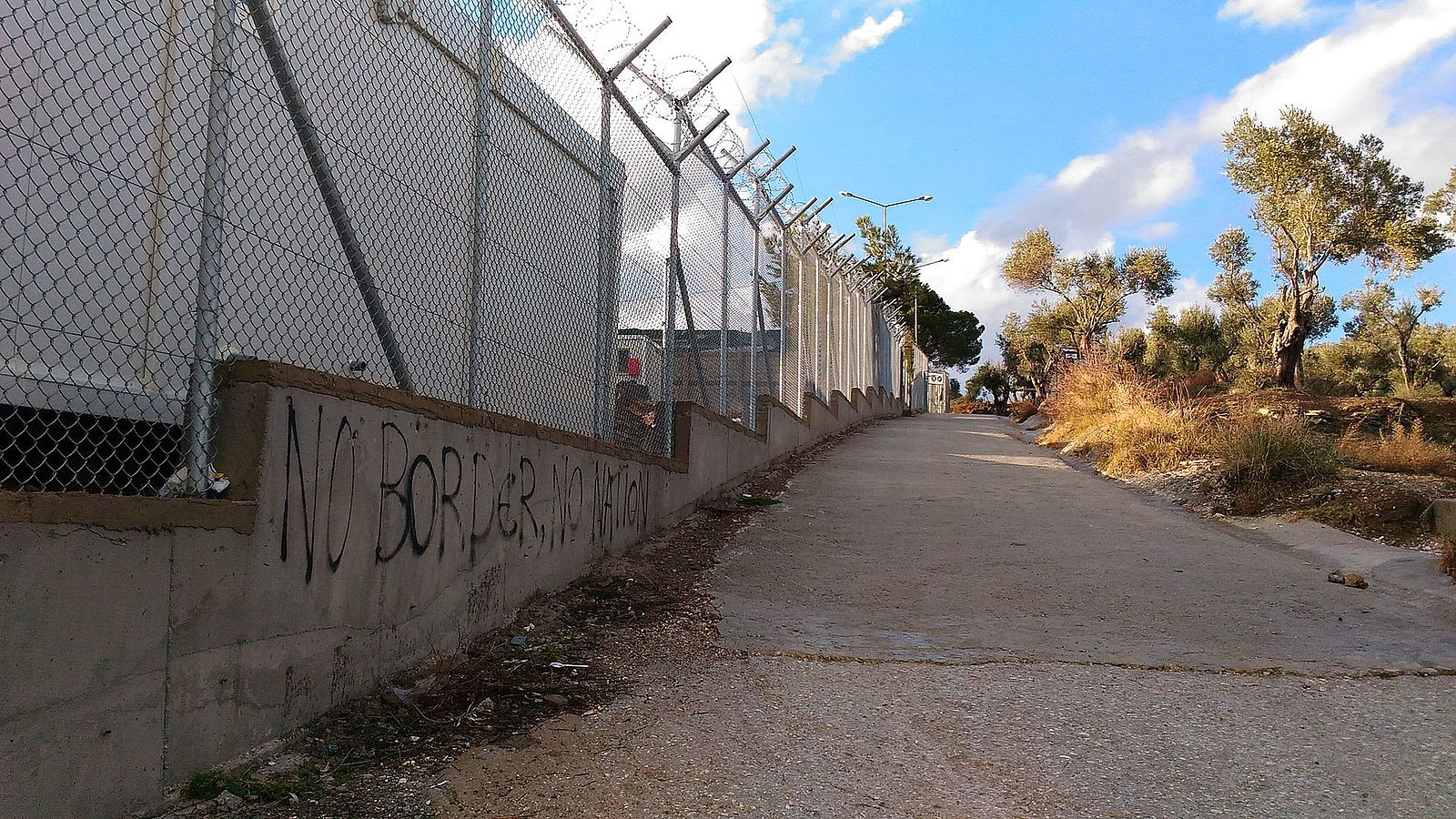MSc Environment and Development candidates, Cristiane Mazzetti and Júlia Bussab Fonseca, pick apart Bolsonaro’s efforts to dismantle environmental policies in Brazil and the impact this has had on the international commodities market.
Leveraged by a massive popular dissatisfaction with the economic and political crisis in Brazil, the far-right candidate Jair Bolsonaro was elected with the declared intention of recovering the economy. Since the electoral period, Bolsonaro has often made clear in his speech that environmental policies and their respective institutions are obstacles for the country’s development. However, this is an outdated approach to development, as policymakers are increasingly investing in alternatives to develop without harming the environment. Brazil was on its way to joining this growing movement, but Bolsonaro’s backward steps on environmental policies has put Brazil behind international market requirements, harming the country’s growth instead of flourishing it.
The first months of Bolsonaro’s government were marked by numerous changes to environmental policies and institutions that have had negative effects on environmental outcomes. Environmental institutions, scholars and even former Brazilian environmental ministers are calling these changes “environmental dismantling”. This environmental dismantling is not only undermining crucial tools that need to be in place to tackle climate change (e.g. to halt deforestation which is responsible for nearly half of domestic emissions), but also placing Brazil in an unfavourable position in the international commodities market.
The dismantling
Brazil’s environmental governance has never been perfect. However, as the holder of the largest tropical forest in the World, in the last three decades Brazil made important international commitments to combat deforestation and biodiversity loss. As a result, federal environmental institutions were created, such as the Ministry of the Environment and its agencies, such as the Brazilian Environmental Agency (Ibama) and the Chico Mendes Conservation Institute (ICMbio). These federal institutions were established to have environmental protection as a mainstream, and amongst their responsibilities are deforestation control and management of conservation areas respectively. In terms of successful policies, it is possible to highlight the Plan for Prevention and Control of Deforestation in the Amazon (PPCDAm), put in place in 2004. This plan includes command-and-control deforestation monitoring operation and delimitation of protected areas. The PPCDam resulted in a dramatic drop of deforestation rates in the Brazilian Amazon Rainforest of almost 80% from 2004 to 2012.
Institutionally, in the last three decades, the Ministry of Environment has focused on formulating environmental policies to align the development of the country with the concept of sustainable development framed in international agreements, building relationships with international institutions and countries such as Norway and Germany on a bilateral basis. However, under the administration of Ricardo Salles, the current Environmental Minister has changed its institutional mainstream from promoting sustainable development to promoting an environmental dismantling rooted in ideological reasons. Indeed, Bolsonaro has declared numerous times his ideological aversion to environmental institutions in general, linking them to left-wing political movements and blaming them for the current economic and social crisis in Brazil.

Ricardo Salles has also dismantled a numerous amount of environmental policies established by former governments to tackle deforestation and climate change. One example includes the previous environmental fines conversion program aligned to the IPCC climate change adaptation framework, aimed to increase the fundraising from environmental fines and address them to climate change adaptation projects. However, Ricardo Salles has suspended the program under the serious allegation that the environmental fines applied by Ibama were questionable, weakening the authority of the official environmental institution in applying the laws. Additionally, Bolsonaro is questioning the legitimacy of Brazil’s internationally renowned deforestation monitoring programme, driven by the recognised National Institute for Space Research (INPE), which is also used by companies to control the deforestation in their supply chains.
In the same vein, other policies are under explicit threat such as: the consolidation of legal reserves and conservation units; the delimitation of indigenous lands; and the effectiveness of the environmental monitoring program by publicly announcing the sites where command-and-control inspections will take place. As a result of delegitimating environmental institutions and policy instruments, the government is flagging a green light to the deforestation which has a negative effect on the credibility of the Brazilian commodities in the international trading market.

Deforestation on the rise and the response of the market for Brazilian commodities
The environmental dismantling and the green light for environmental destruction clearly points towards an increase in deforestation. However, the international market has increasingly demanded commitments to control deforestation in supply chains. As one of the most relevant producer and exporter of soy and beef in the world, Brazil has a significant share of its international commodities market committed to “deforestation-free” or “Zero Deforestation” supply chains, this is the case of the European Union market. For instance, the Soy Moratorium was created in 2006 with the aim of blocking the purchase of soy cultivated in nearly deforested areas. This market-based mechanism was created after the successful pressure of NGOs and consumers, which resulted in retailers in Europe demanding traders in Brazil to supply them only with soy free of Amazon deforestation. Deforestation-free supply chains is a trend worldwide, for instance, business, retailers, and manufacturers part of the Consumers Goods Forum assumed zero deforestation commitments to be achieved by 2020.
However, zero deforestation pledges and commitments go beyond the private sector. Nation-states have their goals as well, which also go counter the current dismantling of environmental policies in Brazil. For instance, halting deforestation by 2020 by states and other stakeholders is amongst the UN Sustainable Development Goals. Even in Brexit times, the UK has assumed the goal of being carbon neutral by 2050, which will potentially involve imports free of deforestation, a significant driver of emissions.
Besides targets, more concrete restrictions are already in place across the world. For example, the European Union directive on Palm Oil establishes that by 2030 the EU should stop acquiring crops associated with deforestation for transportation fuel, which is the case of, palm oil from South East Asia. Countries such as Indonesia, after making slow progress on reducing deforestation will end up losing an important market for its Palm Oil – which currently exports around 15% of their production to the EU.
The Brazilian government is working hard to reproduce a similar story in Brazil. Indeed, a supermarket chain in Sweden announced recently a boycott of Brazilian products because of the recent flexibilisation for the use of pesticides. On top of that, groups are acting to put pressure on the market. Recently a group of more than 600 scientists, through a letter published in Science, demanded the EU to promote sustainable trade with Brazil by posing conditions such as importing only deforestation-free products that must also be free of conflicts with indigenous peoples. In a similar vein, more than 340 organizations also launched a letter addressed to the EU. Additionally, even though the recent-signed EU-Mercosur agreement facilitates the exportation of Brazilian commodities, opening a window for more deforestation, the preliminary principles of the agreement state the need for cross-sectoral actions to remove deforestation from commodities.
In conclusion, Brazil is sailing against important advances in environmental concerns adopted worldwide. By pursuing such environmental dismantling in Brazil, it will be more and more difficult to dissociate commodities from deforestation and other social and environmental negative impacts. In this sense, Bolsonaro’s government undermines not only the climate and all the successful environmental efforts from the past but also the country’s economy, by risking the entrance of Brazilian products in wealthy markets such as the EU.
We wish to thank our Professor Kathryn Hochesteler from the International Development department at LSE and the Professor Sergio Azevedo Fonseca from the Public Administration department at Universidade Estadual Paulista (UNESP) for their insights and for fostering our critical thinking.
Cristiane Mazzetti is an MSc candidate in Environment and Development at LSE and holds a bachelor’s in Environmental Management. Has been working in the environmental area, particularly with policy, advocacy, and multi-stakeholder engagement around issues related to forests and land use in Brazil.
Júlia Bussab Fonseca is an MSc candidate Environment and Development at LSE and an Engineer graduated at the University of São Paulo (USP), in Brazil. She has extensive experiences in implementing projects addressed to indigenous communities in the Amazon Rainforest and has a keen interest in international climate change mitigation and adaptation policies.
The views expressed in this post are those of the author and in no way reflect those of the International Development LSE blog or the London School of Economics and Political Science.





